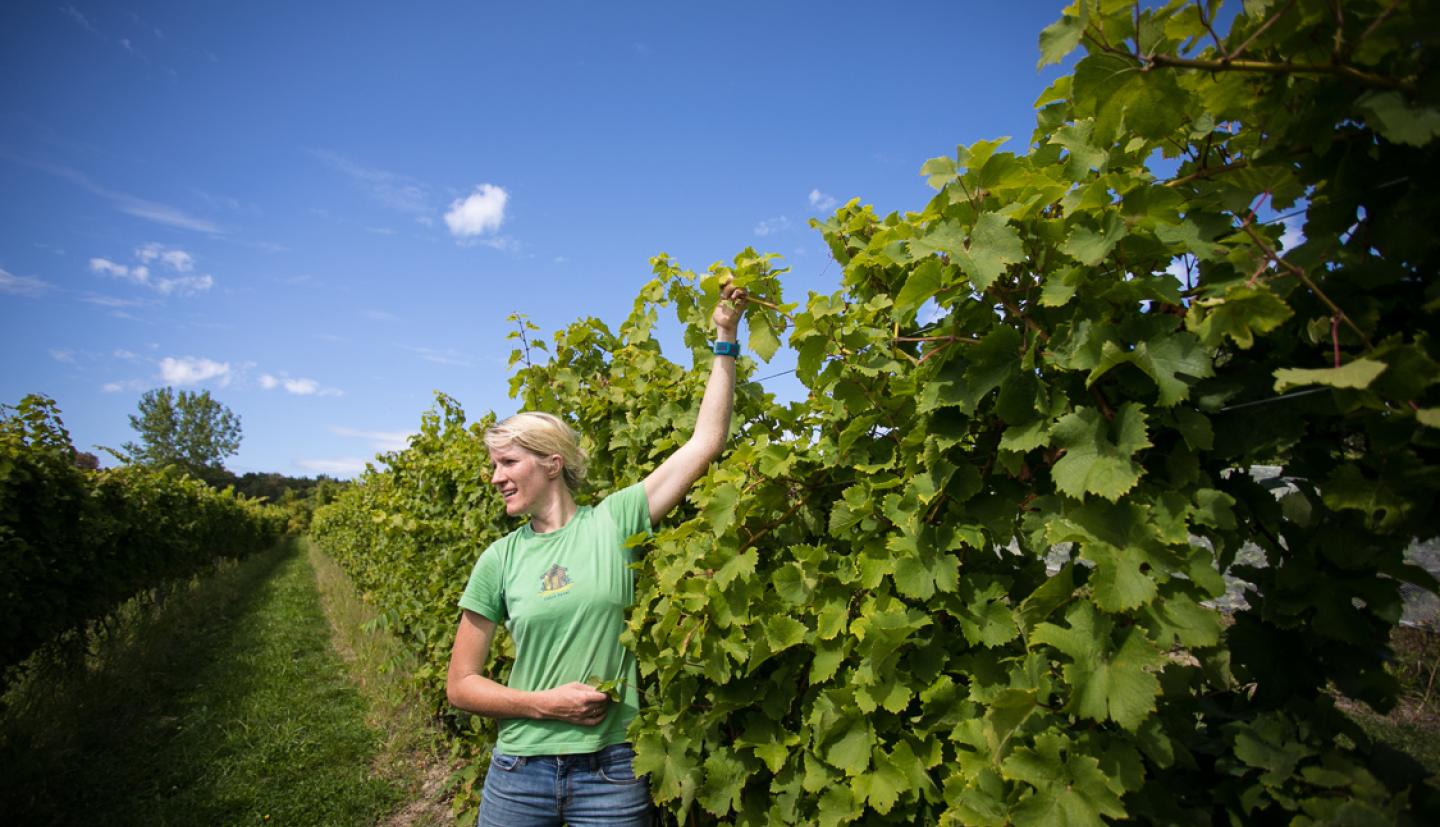Innovative research on a vineyard technique to control vine growth and improve grape composition earned a Cornell doctoral student three high-profile awards this year.
Anne Kearney, a doctoral student in viticulture in the field of horticulture, studies palissage, an alternative to hedging grape vine shoots in order to control excessive growth. Palissage consists of either wrapping shoots on the top catch wire or tucking shoots back into the catch wires. The management technique may be beneficial by reducing vegetative growth of the vine and increasing the efficiency of pesticide application.
Her research has earned her a 2018–19 American Society for Enology and Viticulture (ASEV) Traditional Scholarship, a 2018–19 ASEV Eastern scholarship and a 2018 American Wine Society Educational Foundation scholarship.
Working with associate professor Justine Vanden Heuvel in the Horticulture Section of the School of Integrative Plant Science, Kearney has been looking at the effects of palissage on vine growth and fruit composition, with an emphasis on the physiological mechanisms behind these responses. It has the potential to be used as a canopy management tool in wine grape vineyards given that it reduces extra vine growth in the fruit zone as well as cluster compactness, according to Kearney.
“Palissage is emerging as a new alternative for winegrowers looking to fine-tune their cluster morphology and microclimate, allowing them to further improve fruit quality,” said Vanden Heuvel. “It’s great to see Anne’s research efforts being rewarded with these scholarships.”
The process has showed promise as a way to reduce fruit losses to disease, particularly in tight-clustered cultivars.






